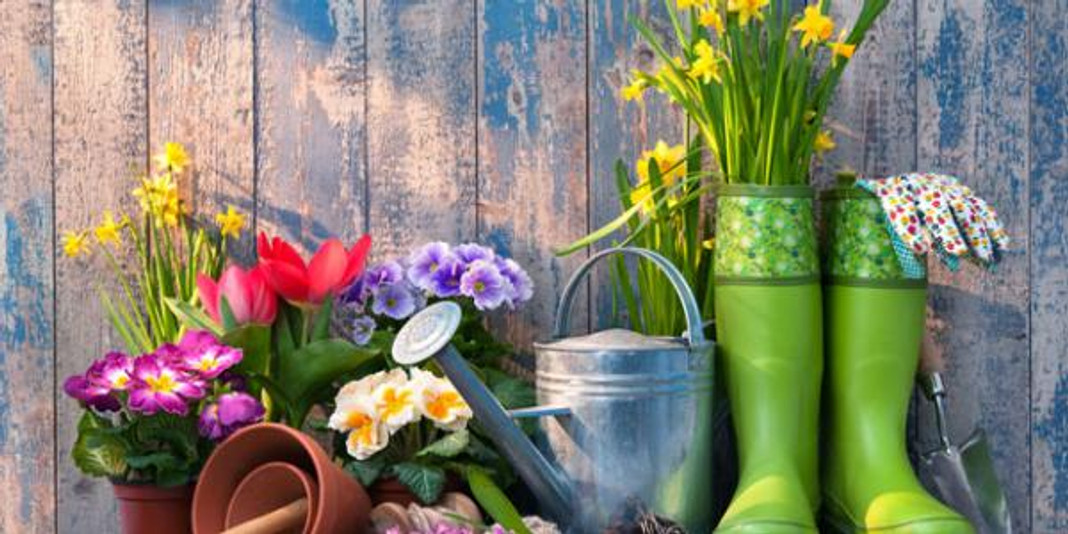
Why Gardening Might Just Save You, Mentally and Physically
Gardens frequently make me cry – with joy, in sorrow and often, on my own patch, with utter frustration at my shortcomings (horticulturally related or not). It’s a rare thing though to be moved to tears by a garden presenter (and even rarer for me to be watching TV). But Rachel de Thame’s fleeting presence at The Chelsea Flower show, being interviewed about her breast cancer diagnosis, had me in floods. Here was a woman, clearly somewhat off her game, admitting firstly that she had been having a tough time, and secondly that her garden had been her solace. It was a dignified, sympathetic handling of what could otherwise have just been social media fodder and a headline in a red-top. But most importantly, de Thame’s message of grace and hope in the face of adversity reinforced what we have known all along – gardens are good for us.
Countless studies reinforce the fact that horticulture can help everything from depression to dexterity and boosting the immune system. I grew up in an environment where everyone gardened (well it was Norfolk – what else can you do?) – from sugar beet and potatoes, to sweet peas, lettuces, tomatoes and roses – pretty much everything came from the land. My great-grandfather gardened two acres until he was 85, when what began as a ‘gardening injury’ eventually claimed him. He would have thought there was no better way to go and frankly, once Dignitas moves from a car park to a greener environment I will be utterly persuaded of its inviolable viability as a means to an end. Pun intended.
What this is all about of course is ‘getting out’ of ourselves, of our situation/our illness, off our screens and out of our homes and into the great outdoors. When my auto-immune is at its worst and I’m bed bound, all I want to do is read about people who have gone off into the wilds, lived off grid, swum deep rivers, or built themselves an incredible garden in the face of adversity. (Favourites: Wild by Jay Griffiths, Pondlife by Al Alvarez, The Jewel Garden by Monty Don). I started gardening with a focus verging on fanaticism when I got divorced and moved to a Georgian cottage at one of London’s highest points, with a wayward, downward sloping 90 foot garden. I had just begun to feel unwell and for weeks I stared out forlornly out at the overgrown green and yellow mess that was the unloved garden. And then my friend Anna (a trained gardener) arrived with a car full of tools. ‘Right then’ she said, ‘lets get started’. Within a day we’d cleared the garden of its ghastly light sucking shrubs and Anna had a plan. Swift, visible progress which was sorely lacking everywhere else in my life, was manifest in the green space before me, in under eight hours. I was hooked.
When my diagnosis came through along with its prescription of 30 mgs of Prednisolone, my exhaustion magically deserted me (well actually it didn’t but the steroids masked it). I gardened manically at all hours with little or no sleep, knowing nothing of the negative side effects of steroids, simply assuming I had been bitten by the gardening bug. I was, I thought miraculously cured by my newly discovered love of horticulture. But when my neighbour stopped me in the street and told me that her husband had glanced out of their bedroom window to see me in shorts, walking boots and a pajama top, digging up a dead lilac tree at 5 am, I realised it was time to re-visit the doctor.
I’m still in love with gardening. When times are tough, just five minutes outside, trimming, weeding or planting is better than any exercise or meditation. The joy of seeing green shoots, pops of colour and catching a waft of fragrance in the breeze, never grows old. Plunging my hands into the soil and getting really mucky after days of sitting in clinical NHS waiting rooms, is my version of a G&T. I believe that gardening can redeem us all in one way or another. From the windowsill spider plant to the five-acre flower meadow and far beyond, the concept of reconnecting with the soil and mother nature has more legs on Instagram than well, millions of tanned, shapely legs (and bums of course).
Best Instagram accounts? @pietoudolf, @thelandgardeners, @greatdixterofficial and hairdresser turned gardenista @SamMcknight1. Chef Thomasina Miers was instrumental in building a garden classroom at a local school, where every child spends at least part of their day ‘learning’, whether it be from the educational curriculum or gardening skills. Take a look at www.schoolfoodmatters.org to see where this utterly transformative movement is going.
DISCLAIMER: The views, opinions and information expressed in this article and on Victoriahealth.com Ltd are those of the author(s) in an editorial context. Victoriahealth.com Ltd cannot be held responsible for any errors or for any consequences arising from the use of the information contained in this editorial or anywhere else on the site. Every effort is made by the editorial and content team to see that no inaccurate or misleading information, opinion or statement appear, nor replace or constitute endorsement from medical bodies or trials unless specified. Victoriahealth.com Ltd accept no liability for the consequences of any inaccurate or misleading data, information, opinion or statement. Information on Victoriahealth.com Ltd and in the editorials is provided for informational purposes only and is not intended as a substitute for the advice provided by your physician or other healthcare professional. You should not use the information on this website or in the editorials for diagnosing or treating a health concern or disease, or for the replacement of prescription medication or other treatment.
